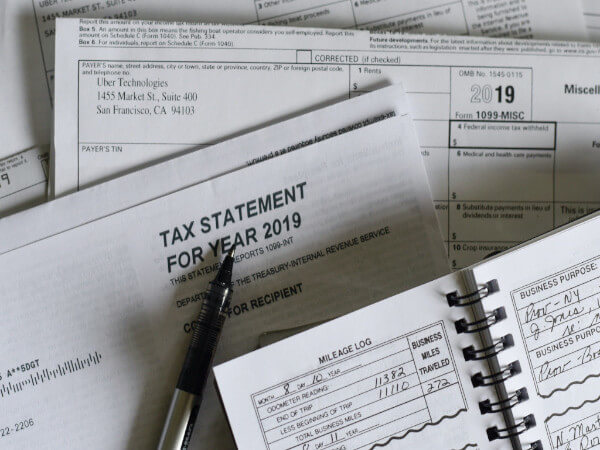Stinson’s Well-Being Committee Steps Up During the Pandemic

The American Bar Association’s Well-Being Pledge is part of its Wellness Campaign for Legal Employers, launched in 2018 in response to the profession’s mental health and substance abuse crisis. Those who sign on — 213 firms to date — pledge to not only support the campaign by creating awareness around these issues, they also agree to accountability, reporting back annually on steps taken to support the pledge. What does that look like? From racial trauma support to return-to-the-office resilience strategies, take a look at what one firm’s Well-Being Committee has achieved.
The Well-Being Pledge
Stinson LLP, an AmLaw 200 firm with 450 lawyers in 12 offices nationwide, has a long-standing commitment to well-being in the workplace. In 2019, Stinson became a signatory of the American Bar Association’s Well-Being Pledge. In keeping with its pledge, the firm established a Well-Being Committee charged with carrying out the pledge framework and other relevant initiatives. When the COVID-19 pandemic hit, the committee was grateful to have so many supportive programs already in place and understood that the extraordinary circumstances would require special and additional support services for firm personnel.
Here is a look at some of what Stinson’s Well-Being Committee has achieved, with examples other firms can follow.
Caregiver Support Network
Parents and caregivers faced unique and significant well-being challenges with the onset of virtual schooling and the elimination of many support services. Launched in April 2020, Stinson’s Caregiver Support Group has become a vital community for caregivers of all kinds. The group, which meets regularly, provides a space for firm personnel to share experiences and ideas for navigating personal and professional responsibilities. The network also created a private Facebook page where Stinson attorneys and staff can support one another in light of the caregiving challenges raised by COVID-19. This forum provides a tool to ask questions, circulate resources and get support.
Racial Trauma Support
Often referred to as the “twin pandemic,” the distressing effects of COVID-19 were compounded by the racial justice reckonings that simultaneously swept many communities. This was especially true for Stinson personnel in the firm’s Minneapolis office, a city that became the epicenter of the turbulence after the murder of George Floyd. Through a partnership between the firm’s Human Resources and Diversity & Inclusion teams, Stinson brought in professionals with expertise in racial trauma to support colleagues with managing the related events and circumstances. Support sessions, including group therapy, provided upfront tools to help process direct and vicarious racial trauma and experiences of civil unrest. These sessions facilitated an open forum for participants to share their feelings, thoughts and experiences, and recommended additional support resources. Additionally, Stinson offered targeted training to firm leaders on recognizing the impact of racial trauma on performance and strategies to offer support.
Well-Being Connectors and Champions
For many, it can be hard to know where to start when addressing a well-being challenge. The “Well-Being Connectors,” a subgroup of the Well-Being Committee, created a network of Stinson attorneys and staff (“Well-Being Champions”) who are willing to talk about their own experiences with alcoholism, substance misuse, anxiety, depression and other mental health challenges in a one-to-one setting. Firm personnel encountering a well-being issue are encouraged to reach out to a Connector to be put in touch with a Champion with a similar experience who can serve as a resource.
nti-Stigma Panel Event
The pandemic exacerbated existing mental health conditions as many people struggled with managing the stress, loss and uncertainty of the times. During Stinson’s annual Well-Being Week programming last May, the committee hosted a live panel event during which attorneys and staff shared openly about their own experiences with challenges such as alcoholism, depression and anxiety. Social stigma is a major barrier for those seeking professional support for substance misuse and mental health issues. Conversing with others who have experienced those struggles is a highly effective way of combatting that stigma. As one attendee put it, “The panel discussion [was] very powerful. All of the presenters were so brave for telling their story, and I’m sure it was helpful for more people than they know.”
Return-to-the-Office Resilience Strategies
When Stinson reopened its offices this September, the Well-Being Committee sought to support personnel navigating that transition. As the firm’s Director of Well-Being, I presented on the science of resilience with practical, evidence-based strategies. The program framed transitions as a process comprised of three stages — a before, a during and an after — each requiring a unique type of resilience. Participants learned various resilience strategies, including how to establish their own transitions advisory board, the importance of living in the duality of simultaneous challenge and opportunity, and ways to monitor their well-being while finding small moments to recharge throughout the day. This webinar was made available for on-demand viewing and continues to be accessed regularly by Stinson attorneys and staff.
There Is No One-Size-Fits-All Approach to Lawyer Well-Being
This was made especially apparent during the pandemic as we managed our unique challenges and circumstances. Essential to any well-being strategy is a variety of programs and resources. With these efforts and others, Stinson has made intentional and innovative steps toward addressing the wide-ranging well-being challenges of this time. Relying on the agility demonstrated in developing this pandemic response, Stinson will continue to adapt practices and programs as new well-being needs arise.
For more information on the Well-Being Pledge and wellness initiatives, contact the ABA Commission on Lawyer Assistance Programs.
The post Stinson’s Well-Being Committee Steps Up During the Pandemic appeared first on Attorney at Work.





